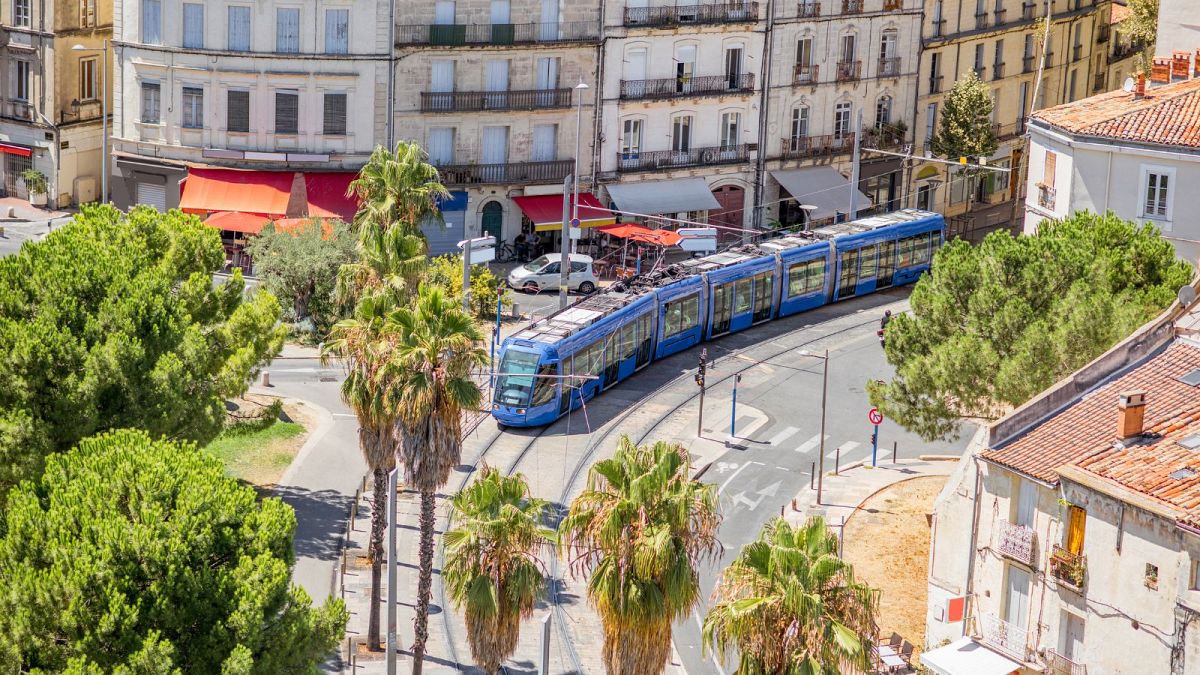Montpellier introduced free public transport to combat the climate crisis and to ease the cost of living for its residents.
Public transport usage in Montpellier has increased by a third after it was made free one year ago, new figures reveal.
The city of 510,000 inhabitants says it has seen 110 million trips on its public transport network since the scheme was introduced on 21 December 2023, compared to 84 million trips in 2019.
“Free public transport means taking action for our children’s and grandchildren’s future in the face of the challenges of climate change, by making CO2-free mobility accessible to all,” Michaël Delafosse, the mayor of Montpellier, and Julie Frêche, the vice president of the Montpellier metropolitan area, said in a joint statement.
How did Montpellier make public transport free?
The plan to make public transport free to all residents has been gradual. In 2020, it was free at the weekends, and the following year, it became free for under-18s and those over 65.
Two years later, the ambitious move to make it universal came into force, making Montpellier the biggest European city to introduce such a measure.
Only residents are eligible, and they must sign up using a photo ID and proof of address in exchange for a free transport pass. The pass must be scanned on every journey so the city can track usage statistics.
Politicians say the climate crisis was a key reason for introducing the measure, as they wanted to encourage a move to greener transport to reduce emissions and air pollution in the city.
They also wanted to improve people’s cost of living, pointing out that a family of four could make savings of €1,470 per year through the scheme.
How is free public transport funded?
However, public transport still has to be paid for in some way. There are three primary funding sources in France. One is commercial revenue, such as tickets, which Montpellier still charges non-residents for.
A tax is also imposed on employers with at least 11 employees to fund public transport and mobility services. Finally, public funding is obtained from local authorities.
Critics of free public transport schemes argue that the cost is borne by the taxpayer and that it can discourage investment in public transport systems.
Montpellier points to its investment plan of €1 billion in transport over six years, with money being put into bike lanes and car-pooling as well as public transport.
While Montpellier may be the largest city to introduce free public transport it’s far from the first place in Europe to do so.
Tallinn in Estonia paved the way back in 2013. Since then, multiple other cities and towns have set up their own schemes, while two European countries got in on the act. Luxembourg made trams, buses and metros free for all in 2020, and Malta followed its lead in 2022.

